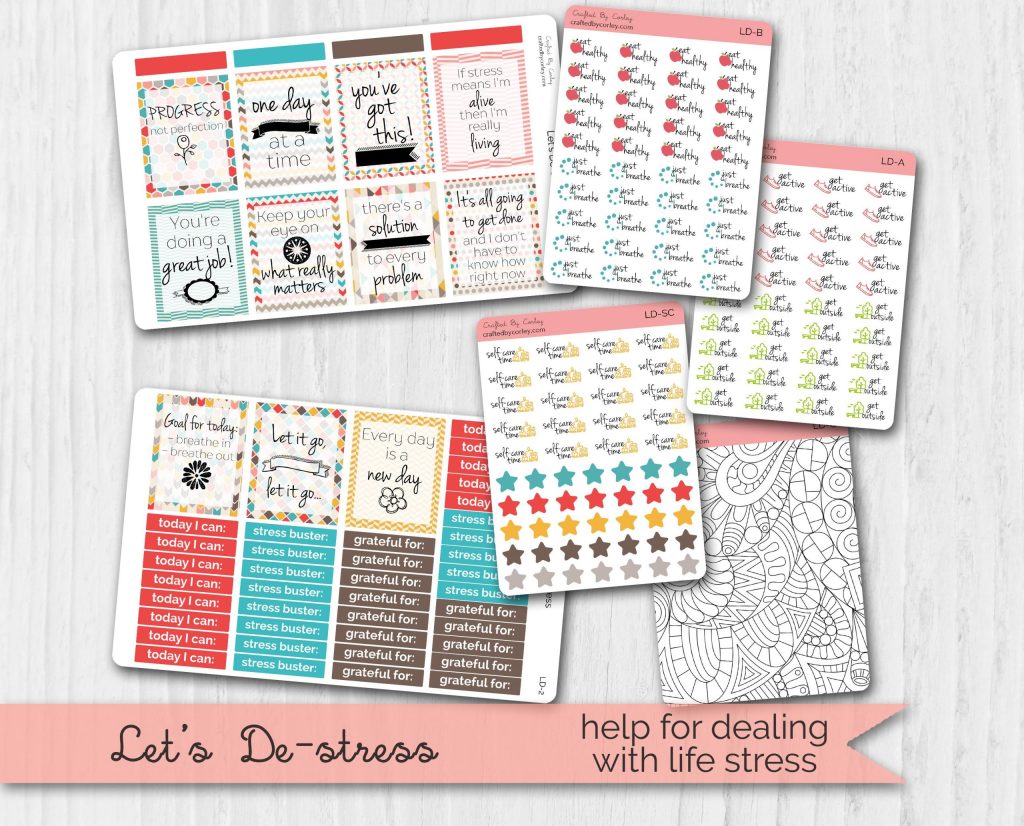
Most people think using a life planner just helps you to remember dentist appointments and when your kid has soccer practice. But there are some great mental health benefits to using a life planner consistently and the right way.
How can using a life planner help improve your mental health?
- It helps you develop the week-by-week habits that are necessary to support and sustain good mental health. Learning how to improve and protect your mental health or manage a mental illness requires that you master the basics of good self-care. That includes at a minimum good nutrition, exercise, sleep, and stress management. Time in nature and in social connection or engaging in a spiritual practice may also be essential. Using a life planner can help you to set an achievable goal related to one of these areas each week, so that over time you achieve the level of self-care you need to support your mental health and keep you resilient to life stress.
- It can help you to track your progress and see how consistent you are in meeting your goals. Using a planner helps you bridge the distance between “I really should…” to “I’m going to do this at this time.” It gives you the visual picture you need to know whether you are improving, declining, or holding steady with a goal or habit. It gives you feedback as to whether a goal you set was not realistic and needs to be scaled back or whether you can continue forward or set a higher one. It gives you helpful information so you can hold yourself accountable for reaching your goals.
- It helps you to discover trends that are important to mental health. Your life planner helps you track moods, energy, healthy habits, and how these are affected by life stressors. For example, you may more quickly notice when you are withdrawing from social events and isolating yourself, which may be one of the signs that your depression is worsening. Or that you do this following weeks in which you stay at work late more than two nights. You may be able to notice more quickly that spending 15 minutes each morning walking outside before work lifts your mood or that your motivation increases or decreases after you spend time with a certain person.
- It helps you make better plans for self-care, making you more resilient to life stress. Because you plan your life out in days, weeks, and months you can see important events way ahead of time and can plan for them instead of being caught short in terms of time, energy, or resources. Figuring out that you need to alter your schedule or health habits during certain times of the month or year is invaluable information for managing stress.
- It puts your mental health back into YOUR hands. Often if you’re managing depression, anxiety, OCD, or other mental health issue, it’s easy to fall into the trap of thinking that your mental health is being managed by others: your therapist, your psychiatrist, or your medication. The truth is that regardless of the resources you bring in to manage your mental health, you are ultimately the one responsible for doing what is recommended to keep you healthy and functional. Using a life planner can help you to keep on top of your doctor appointments, make sure you’re taking your medication as prescribed (without running out!), and develop the self-care habits which are pretty much non-negotiable for good mental health.
Dr. Anita Sanz, PhD, Psychologist
- Life Planning (5)
- Therapy (43)
- Anxiety (11)
- Depression (16)
- On The Couch (16)
- Well Being (59)
- Health (10)
- Holidays (7)
- Life Hacks (20)
- Relationships (13)
- The Big Picture (9)
